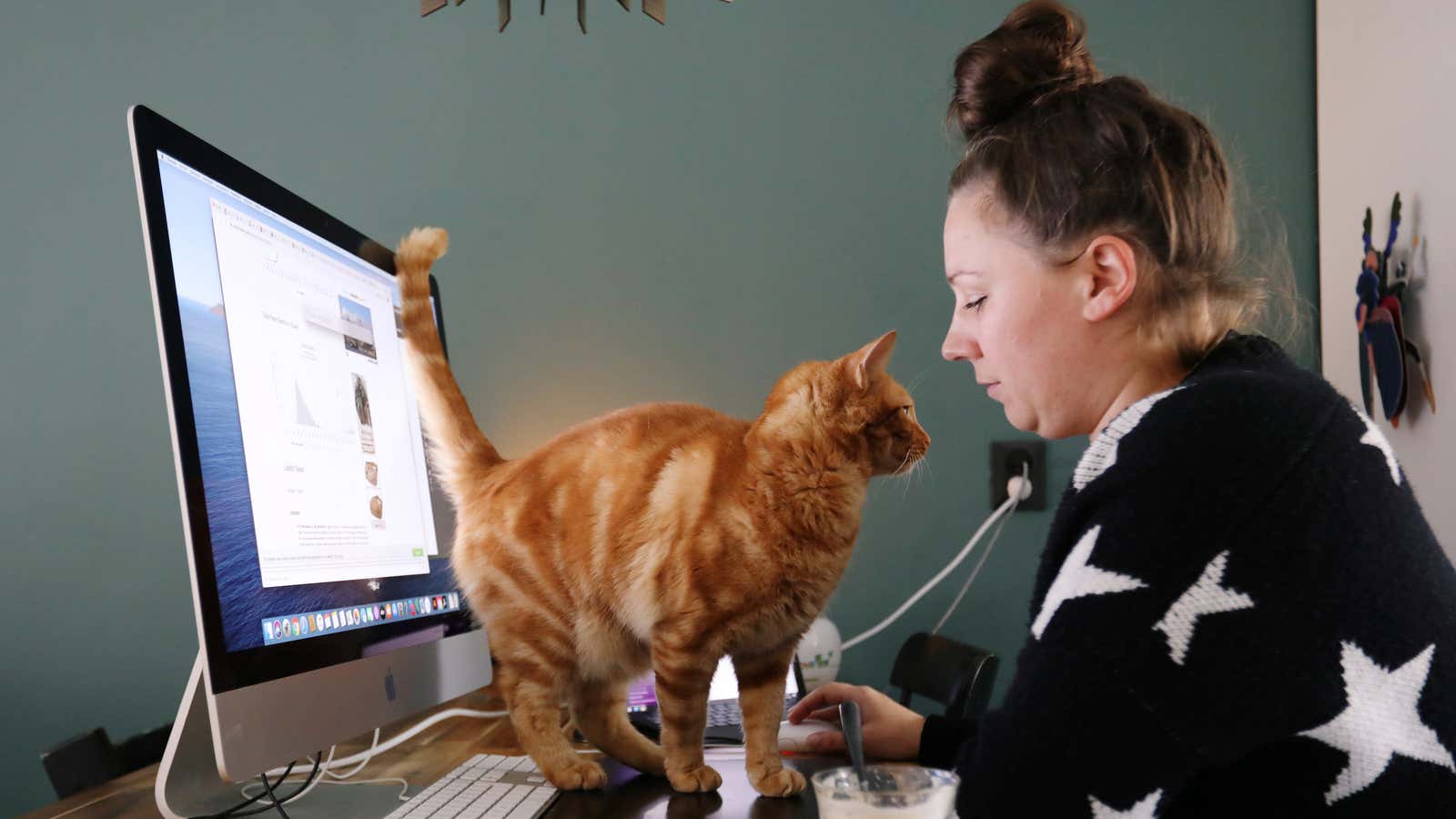As the highly contagious delta variant causes cases of Covid-19 to surge in the US and elsewhere, companies including Amazon, Google, Apple, American Express, Wells Fargo, US Bank, Dell Technologies, and Lyft have postponed their plans to call workers back to the office.
Some, as with Apple and Wells Fargo, shifted their return-to-office date from September to October. Others have delayed into 2022, and some, like Microsoft-owned LinkedIn, have changed their minds and offered employees a fully remote option for the long term
Still others have yet to shift their office reopening plans at all, holding firm to the post-Labor-Day deadline that looked reasonable just a few months ago, before the pandemic took a turn for the worse.
There are, of course, some jobs that need to be done in person, and it’s essential that such workers be provided with spaces that are as safe as possible. (Encouraging all workers to get vaccinations, or even mandating vaccines, is one place to start, as is providing good ventilation and mandating masks.)
But any company that’s been able to accommodate remote work during the pandemic can presumably afford to do it for a while longer. If that’s the case, then they ought to indefinitely suspend the idea of requiring people to come into the office—not just because of the public health threat that delta and other future Covid-19 variants represent, but because it’s in the best interests of their employees’ psychological well-being, too.
Why the delta variant may change employees’ comfort levels
While vaccines are very effective at preventing serious illness, they’re not as effective at preventing milder and asymptomatic cases, particularly those involving the highly transmissible delta variant.
As delta continues to spread, even vaccinated employees may be understandably worried about heading back to the office. “A lot of people who have somebody at home that they might worry about exposing,” says Jeff Levin-Scherz, a doctor who is an assistant professor at Harvard’s School of Public Health and leads the Covid response at consulting firm Willis Towers Watson. Parents may be worried about catching Covid at the office and spreading it to kids who are under age 12 and still not eligible for the vaccine. Others may be worried about infecting loved ones who are immunocompromised, or indeed themselves. (About 3% of the US population has immunosuppression issues.)
A risk-benefit analysis
There are certainly safety measures that companies can take to reduce the risk of infection, including the aforementioned combination of vaccine mandates, masks, ventilation, as well as social distancing. But even with all these measures in place, companies that insist on bringing remote workers back to the office are bound to run into resistance and resentment from those who feel unsafe.
“It’s a hard time to be rigid about demanding that people come back to the office,” says Marianne Cooper, a sociologist at Stanford’s VMWare Women’s Leadership Innovation Lab. She says companies should “really be weighing the benefits of the return to the office against the costs that people will incur psychologically and emotionally.”
After all, worrying about whether you’re increasing the risk of exposure for your unvaccinated first-grader is unlikely to induce high performance. “There could be a productivity hit if employees are spending days in their office but they’re totally anxious and on guard the whole time they’re there, as opposed to them being at home and feeling safer from a health perspective,” Cooper says.
She also thinks it’s likely that schools in some parts of the US will face Covid outbreaks and school closures—which would put parents in the position once again of having to juggle work and childcare, a situation that becomes outright impossible if they’re supposed to be in the office three days a week.
“If everyone has to quarantine for 14 days, are employers going to be understanding of that?” Cooper says. An inflexible remote-work policy, she adds, would probably wind up being particularly penalizing for women, who took on the bulk of child-care responsibilities during the pandemic.
A Covid-era competitive advantage
Companies don’t necessarily have to go fully remote to accommodate employees. There are vaccinated workers who won’t be as worried about catching or transmitting Covid and will be eager to go into the office again, whether because they prefer in-person meetings or find it easier to concentrate away from their homes. And they may well be open to following guidelines like wearing masks indoors, per CDC guidance, in order to get the benefits of office life. “The issue is that a one-size-fits-all policy is going to be very challenging,” Cooper says.
🎧 For more intel on the modern office, listen to the Quartz Obsession podcast episode on office chairs. Or subscribe via: Apple Podcasts | Spotify | Google | Stitcher.
The good news is that companies have already had a lot of practice over the past year in scrapping their plans and coming up with new ones. As Levin-Scherz puts it, “Employers have found they can be much more flexible than anybody believed they could be.”
And in a climate where many companies are struggling to attract and retain talent, they only stand to gain by giving employees the option to do whatever makes them feel safest.
